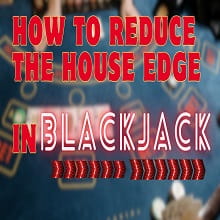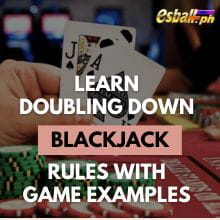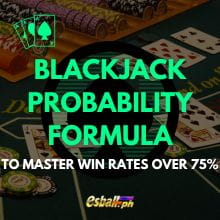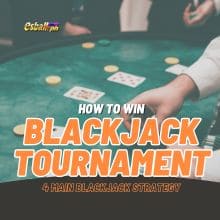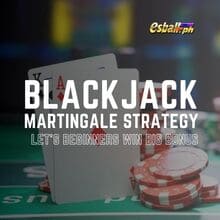Unlimited Blackjack, What to Do When You Get 17 Points?
Blackjack players know that the dealer must stand on 17. However, players getting a hand of 17 don't necessarily have to stand. So, what to do when getting 17 points in unlimited Blackjack?
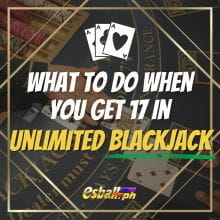
Game Introduction
Players who have seen the movie "21" or enjoy playing blackjack know that the dealer must stand on 17 according to the game rules. However, players getting a hand of 17 don't necessarily have to stand. So, when playing unlimited Blackjack, should you continue to draw cards in such a situation?
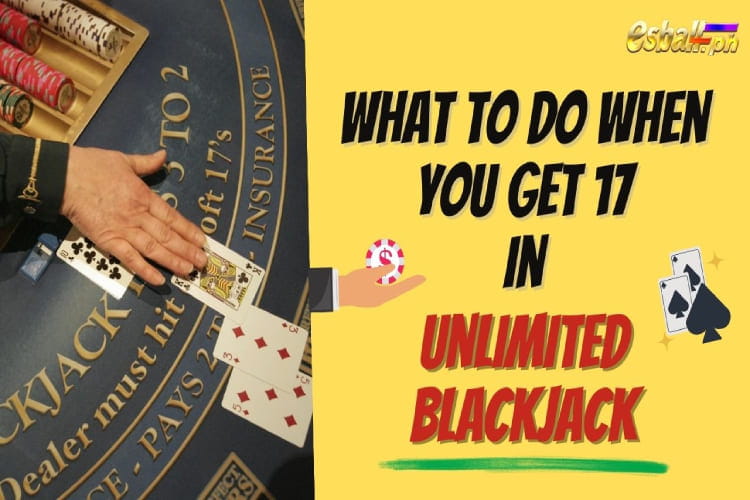
Common Dilemma of 17 Points in Unlimited Blackjack
This is the awkward situation we face when holding 17 points at an unlimited Blackjack table. If you don't draw a card, your chances of winning are slim; if you draw a card, you might increase your chances of losing. The "textbook" for unlimited Blackjack advises not to draw a card after reaching 17 points, but many players can't resist the temptation, especially when facing a dealer's face card of 8 or higher. But... is this approach appropriate?
Let's first look at the possibilities with 17 points. If you choose to draw a card, out of the 13 cards from 2 to Ace, only 2, 3, 4, and Ace can improve your hand. Ace gives you one more point, bringing you to 18 points; 2 gives you 19 points, and 3 gives you 20 points. The best is 4, giving you 21 points, almost unbeatable unless the dealer gets a "blackjack." However, the other cards (5, 6, 7, 8, 9, J, Q, and K) will make you bust with 17 points. Before the dealer draws a card, you lose without a chance to push, not to mention the possibility of the dealer busting.
In the above example, we can see that out of the 13 cards, 4 can help us improve, and 9 make us lose the opportunity. In other words, when you have 17 points, drawing a card has a 31% chance of improvement, and it doesn't guarantee victory; 69% of the time, you will lose.
A New Perspective for Blackjack Easy Win
Let's talk about a different perspective! We can pay attention to the dealer's face-up card. If it's a 6 or below, even if the dealer has a 10-point card facedown, they can at most have 16 points, and the dealer must draw a card. Now, notice that the dealer is likely to go over 21, so even if you only have 12 points, as long as the dealer doesn't reach 17 or more (even with 16), they can't outdo you.
In essence, having a modest total doesn't mean you should rush to reach 17 or more for safety. The crucial factor is outplaying the dealer rather than chasing a higher total. Drawing a card isn't solely about boosting your total; it's about snagging the smaller cards for yourself and letting the dealer grapple with the bigger ones. This principle holds the key in the dynamic world of unlimited Blackjack, where decisions often seem unclear. A universal guideline is to weigh your options based on which choice maximizes your gains or minimizes your losses. Once you figure that out, making the right call becomes a breeze.
Learn more Blackjack Strategy in our site.
Pair of 10s, Split or Not?
In unlimited Blackjack, every time the dealer deals you two face cards (10, J, Q, K), you're likely to be happy. Regardless of the dealer's face-up card, you already have 20 points. Most people won't draw any more cards unless the dealer has a blackjack, often just waiting for a decisive victory at 21. But what if you split the pair? Splitting two face cards, each becoming a single 10, and drawing a card again can result in a profitable outcome. If you're lucky, you can win both hands, and even if you win one and lose one, you can break even at least. It sounds like a good deal! If such a situation happens in a physical casino, and a player faces the dealer one-on-one, it's fine; the player takes responsibility for their win or loss. However, when it occurs at a multi-player table, you'll often hear more or less murmurs. If the split results in the dealer getting a high-value card, winning the entire table, the person who split becomes an immediate historical villain.
"20 points, it's big! Why did you split? We all lose!" "Don't know how to play! Splitting 20 points, what's wrong!" If the split leads to the entire table winning, the one who split becomes a hero. However, what seems to be seen more often is losing more and winning less. An experienced player would never split a pair of 10s. Why is that? The Myth of Splitting in unlimited Blackjack It's actually quite simple and can be explained using the concept of a fair price.
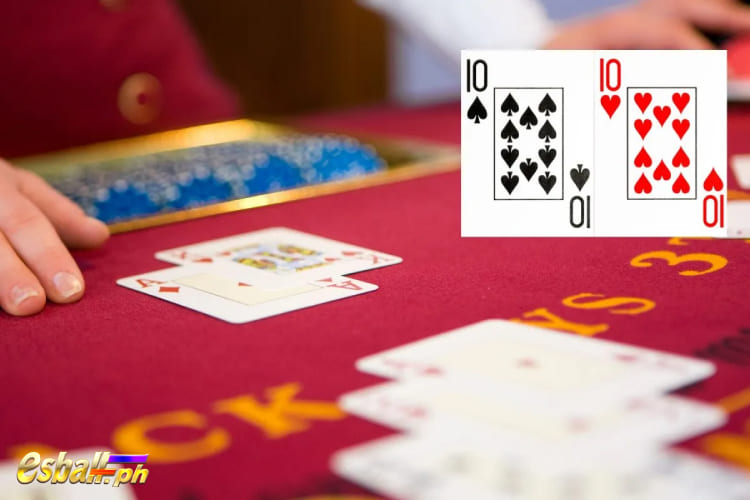
Unlimited Blackjack Analyze Example
Let's analyze unlimited Blackjack using the most common example of splitting 20 points.
When you have 20 points (pair of 10s) in hand, and the dealer has the weakest hand of 6 points, the dealer's chance of reaching 21 points is about 10%, 20 points about 10%, and the remaining outcomes about 80%. Suppose we bet $1,000. Basically, in 80% of the situations, we win; in 10%, we push; in 10%, we lose. So, the average net profit for this hand is $700 for every $1,000 bet. Looking at this hand from another perspective, when you have 20 points and stand against the dealer's 6, if someone offers to buy the results of this hand from you, the fair price should be $700.
Splitting Doubles the Risk of Winning at Blackjack If you split, in unlimited Blackjack, your 20 points become two single 10s against the dealer's 6. Calculating this win rate is quite complex, but the result is that the average net profit for a single 10 against 6 is 29% of the bet amount. Yes, it's also a profitable hand, but far below the 20 points against 6. If you split, you will get two 29%, meaning your profit becomes 58%, which is 12% less than not splitting. Yes, these numbers already consider the possibility of splitting again after getting a 10. Once you split, your risk increases by 100%. In fact, the correct play with 20 points against any of the dealer's 10 starting hands (2, 3, 4, 5, 6, 7, 8, 9, 10, A) is not to split, just wait for the fish to bite. This principle applies in unlimited Blackjack as well, so next time, don't happily split a pair of 10s; it's wiser to sit back and watch.
Learn more Blackjack Strategy in our site.
 |
 |
Blackjack Strategy

